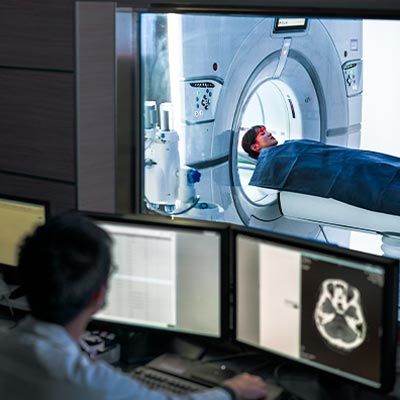 Society
Society


|
| A doctor screens a patient. — Photo courtesy of the Integrated Oncology Centres |
HÀ NỘI — It is expected that Asia will have a surge of around 35 per cent of cancer patients with an increase in the mortality rate of 40 per cent by 2030, according to the Integrated Oncology Centres (IOC) - Asia’s first-region wide network of cancer centres that aims to provide integrated care to patients across Asia.
The existing cancer burden has been further amplified by the COVID-19 pandemic. In developed countries like the United States, cancer screening decreased by 90 per cent during the early stages of the pandemic, leading to an increase in risk of misdiagnosis.
A similar state of affairs can be observed in Asia as well, where fragmented care, rapid urbanisation and an ageing population calls for a different approach to manage the cancer burden in the region.
Phoebe Ho, Chief Executive Officer of IOC, said at a virtual press briefing on Tuesday that cancer care in Asia has evolved over the last decade. The healthcare systems across Asia are diverse and quality of cancer care is variable.
Although the quality of healthcare delivery has improved in the past decade especially in developed countries and territories like Singapore, Hong Kong, Taiwan and Japan, there are still many populations in Asia where access to good quality cancer services are not possible or affordable, according to Ho.
Having an integrated approach to cancer care is crucial as this allows patients to be treated under one roof, from imaging to diagnosis, to systemic and RT treatment and even post-care and survivorship. Integrated cancer care places the patient in the centre of the treatment process, involving them in the decision-making process on the best tools and approaches available.
The number of new cancer cases in South East Asia in 2020 was 2,252,981 with 1,444,528 deaths.
Bringing together medical expertise and passionate healthcare operators together, the IOC was established in 2015. It includes cancer centres in Indonesia, Hong Kong, Philippines, Việt Nam and Malaysia. — VNS